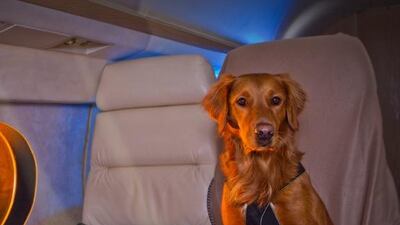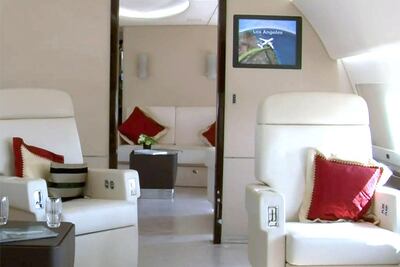In the era of the humble brag, it’s harder than ever to know how your boss travels. Assuming he or she is the type who likes to share, you might see a suggestion of a private jet or a swanky beach resort on Instagram - or hear one unassuming story about the sea turtles that swam under the paddleboard in St Barts.
Unfortunately, during your water-cooler conversations, no chief executive officer is ever going to spill the beans on their favourite private island, the extent of their security detail, or the lengths their assistants went to procure Coke Zero in Madagascar.
Enter Jaclyn Sienna India, president and founder of the decade-old travel consultancy Sienna Charles. She is a go-to for the finance world’s jet set, regularly organising trips for at least two dozen CEOs, along with other titans of industry and a handful of former American presidents. Her clients range from Morgan Stanley higher-ups and former top-level executives at American Express, to billionaires and real estate tycoons, some with budgets that climb into the millions.
Here’s what she had to say about her C-suite customers—the good, the bad, and the hyper-demanding.
A private jet is a business expense
Private jets for execs and their families are almost always reimbursable corporate expenses. Why? Transportation is considered a matter of security, and most CEOs plan travel in tandem with work trips. So they may take their family with them to Dubai for a few days before jetting off to the Maldives.
“Safety” is a card more legitimately played by former presidents, says India, who has organised trips to Africa for George W Bush and his 30 secret service agents. But CEOS are productive on planes. She jokes that “if you can be offline for 10 hours, then you aren’t really that important”.
Privacy is also important. On holiday, “CEOs like to stay under the radar and want to focus on their family”, India said. Speaking of family time: They often travel with their pets, “just because they can”.
It takes a village
For every VIP itinerary, there are “layers of experts” coordinating the logistics, says India "to make sure everything is exactly they way they like every step of the way”. A CEO’s personal assistants prove extra-valuable: one client drinks only O’Douls and has frequent hankerings for crunchy peanut butter; others might like their entire minibar stocked with a particular beverage (think: Coke Zero).
Preferences for air travel can be among the most important to consider. India says some of her regulars might want a particular make and model for their airport transfer (for vanity), some want to be picked up right next to the aircraft (for speed), and others are particular about having two pilots even on a tiny helicopter (for paranoia).
Bigger isn’t better
“Since the way they live normally at home is quite lavish, they love top accommodations,” said India of her guests. The five key things they’re looking for are: good light, outdoor space, seamless technology, high-end furniture and a super-comfortable bed. Specific views (such as the Eiffel Tower or Spanish Steps) might help, too. Square footage is less important: “A good suite is not just about big for the sake of being big,” India explained.
These criteria have shaped India’s shortlist of the best hotels in the world. “In Rome, for example, everyone assumes they should be staying at the Hassler, but I don’t love it personally. It’s great for lunch, but the rooms are highly overpriced.” Instead she books guests into the just-renovated Hotel Eden, where she’s partial to the Aurora Terrace Suite. In Paris, she turns to the penthouses at the Bristol and Plaza Athénée.
As for the rooms and resorts on CEO bucket lists? They include the Brando, a private island resort in Tahiti that was once owned by Marlon Brando; the Four Seasons Bora Bora, whose three-bedroom overwater bungalows are among the best in Polynesia; the AII Royal Suite at the Four Seasons in Lanai, Hawaii; and the private villas at Castiglion Del Bosco, a Tuscan village-turned-Rosewood resort by the fashion mogul Massimo Ferragamo.
A predominantly grateful crowd
Shocker: CEOs can be difficult. One hedge fund owner recently sent India a barrage of round-the-clock texts and emails complaining that the weather was too hot in Italy. What’s more, India said the 12-year-old kids were as difficult as the parents, with over-the-top criticisms of a luxury spa experience.
This isn’t common, though. India said that by and large, she works with “really nice people who generally appreciate everything”. What is common? Receiving flowers and thank you notes - or even photo books filled with vacation snaps - from happy clients. “It’s thoughtful stuff, not a Ferrari outside my apartment,” she quipped.
Her most appreciative clients prefer a more personal route, opening their homes and inviting India for dinners. “That’s the best thing,” she said. “I never feel looked down upon; I’m being treated as an expert and part of the family instead, and that’s really special. And the next trip we plan for them is even better as a result of getting to know each other.”
* Bloomberg



